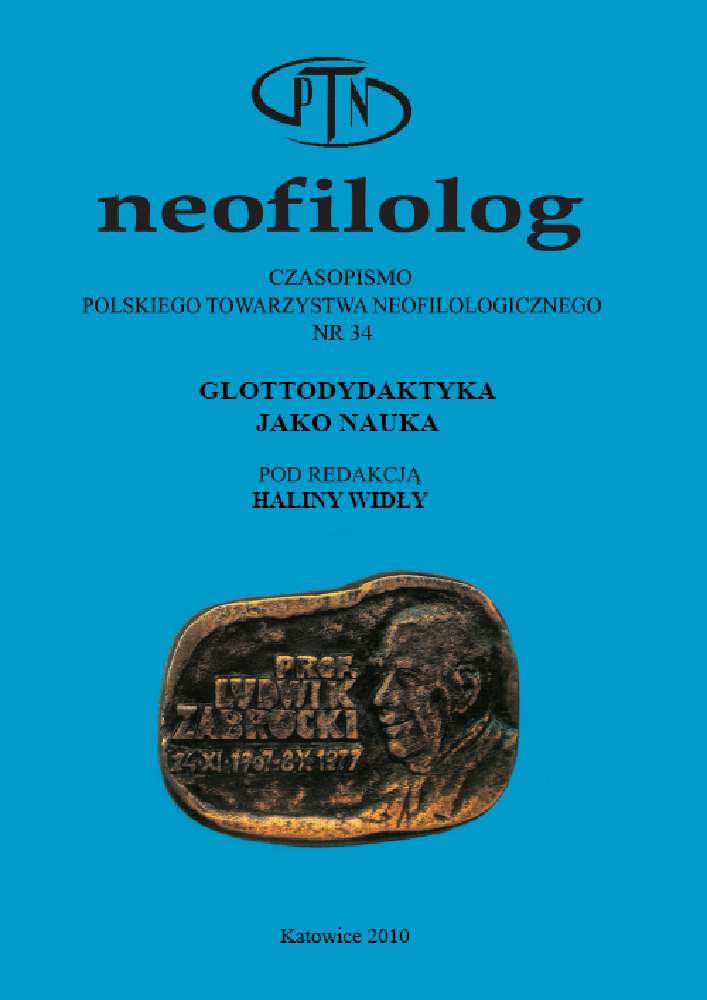Résumé
This article is an attempt to determine the reasons for difficulties encountered in the interpretation of data collected in the process of conducting action research on developing a reflective attitude in TTC students. The starting point for investigating the above issue is a short presentation of the action research study: the subjects’ aim, and tools employed in the process. The difficulties with interpreting the collected data will be examined mainly from the cognitive perspective, as the description and interpretation relate to internal cognitive processes, observable only in potential change of behaviour. It is significant,
therefore, to work out, among the research participants, a coherent conceptual area referring to the changes under investigation. Interpretation of data is also the result of the quality of interactions among the research participants, which will be presented using the example of relations between the teacher researcher and participant-students and their possible influence on the students’ opinions. The article closes with suggestions for selecting criteria for the interpretation of data being collected.
Références
Bazin, H. 2003-2007a. « Questions fréquentes sur la recherche-action ». http://biblio.recherche-action.fr/document.php?id=142 Dokument elektroniczny w: Bazin, H. 2003 – 2007, Bibliographie R-A http://biblio.recherche-action.fr/ DW: 14.10.2009
Bazin, H. 2003-2007b. « Questions fréquentes sur la recherche-action ». http://recherche-action.fr/pages/manual12/principaux-courants/recherche-action-participative.php Dokument elektroniczny w: Bazin,
H. 2003 – 2007, Portal recherche-action.fr, http://recherche-action.fr/pages/portail/introduction-a-la-recherche-action.php DW: 14.10.2009
Bazin, H.2006. « Comparaison entre recherche-action et recherche classique». http://biblio.recherche-action.fr/document.php?id=137#tocto2
Dokument elektroniczny w: Bazin, H. 2003 – 2007, Bibliographie R-A http://biblio.recherche-action.fr/ DW: 14.10.2009
Le Boterf, G. 2008. Construire les compétences individuelles et collectives. Paryż: Groupe Eyrolles
Bruner, J. 2006 [1997] „Narracyjna konstrukcja rzeczywistości”, (w) Kultura Edukacji. Przekład: T.Brzostowska-Tereszkiewicz, Kraków: Universitas
Mezirow, J. 2001 [1991]. Penser son expérience. Une voie vers l’autoformation. Przekład z amerykańskiego: Daniel i Guy Bonvalot. Lyon: Chronique Sociale
Narcy-Combes, J.P. 2005. Didactiques des langues et TIC: vers une recherche-action responsable. Paryż: Ophrys
Licence
© Joanna Stańczyk 1970

Ce travail est disponible sous licence Creative Commons Attribution - Pas de Modification 4.0 International.
Auteurs :
Les auteurs de textes acceptés pour publication dans la revue Neofilolog sont tenus de remplir, signer et renvoyer à l'adresse de la rédaction, un accord sur l'octroi d'une licence gratuite pour les œuvres, avec obligation d'accorder une sous-licence CC.
En vertu de cet accord, les auteurs des textes publiés dans la revue Neofilolog accordent à l'Université Adam Mickiewicz de Poznań une licence non exclusive et gratuite et permettent l'utilisation de la sous-licence Creative Commons Attribution-NoDerivatives 4.0 International (CC BY-ND 4.0).
Les auteurs se réservent le droit de disposer librement de l'œuvre.
Utilisateurs :
Les utilisateurs d'Internet intéressés ont le droit d'utiliser les œuvres publiées à partir de l'année 2017 sous réserve des conditions suivantes :
- reconnaissance de la qualité d'auteur - l'obligation de fournir des informations sur la qualité d'auteur, le titre, la source (liens vers l'œuvre originale, DOI) et la licence, ainsi que l'œuvre distribuée ;
- sans créer d'œuvres dérivées - l'œuvre doit être conservée dans sa forme originale, p. ex. les traductions ou les interprétations ne peuvent être distribuées sans le consentement de l'auteur.
Tous les textes publiés sont soumis au droit d'auteur.
Autres :
L'Université Adam Mickiewicz de Poznań se réserve le droit à la revue dans son ensemble (mise en page, forme graphique, titre, conception de la couverture, logo, etc.).
.
